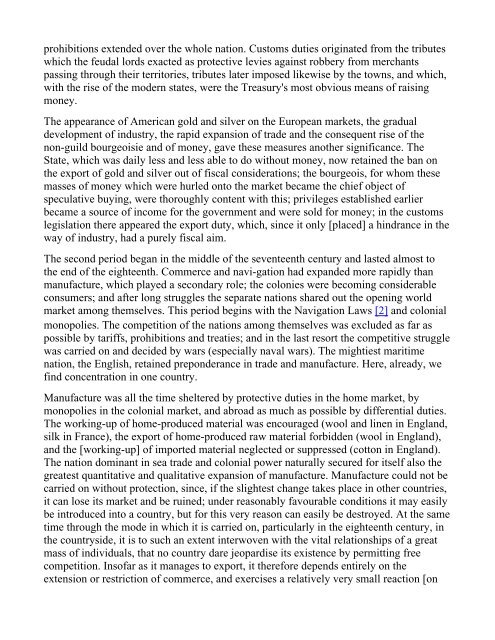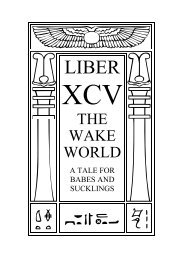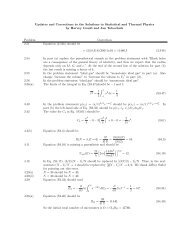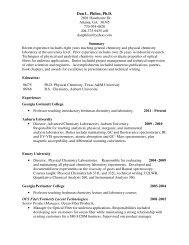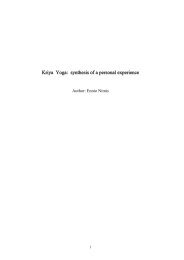A Critique of The German Ideology
A Critique of The German Ideology
A Critique of The German Ideology
You also want an ePaper? Increase the reach of your titles
YUMPU automatically turns print PDFs into web optimized ePapers that Google loves.
prohibitions extended over the whole nation. Customs duties originated from the tributes<br />
which the feudal lords exacted as protective levies against robbery from merchants<br />
passing through their territories, tributes later imposed likewise by the towns, and which,<br />
with the rise <strong>of</strong> the modern states, were the Treasury's most obvious means <strong>of</strong> raising<br />
money.<br />
<strong>The</strong> appearance <strong>of</strong> American gold and silver on the European markets, the gradual<br />
development <strong>of</strong> industry, the rapid expansion <strong>of</strong> trade and the consequent rise <strong>of</strong> the<br />
non-guild bourgeoisie and <strong>of</strong> money, gave these measures another significance. <strong>The</strong><br />
State, which was daily less and less able to do without money, now retained the ban on<br />
the export <strong>of</strong> gold and silver out <strong>of</strong> fiscal considerations; the bourgeois, for whom these<br />
masses <strong>of</strong> money which were hurled onto the market became the chief object <strong>of</strong><br />
speculative buying, were thoroughly content with this; privileges established earlier<br />
became a source <strong>of</strong> income for the government and were sold for money; in the customs<br />
legislation there appeared the export duty, which, since it only [placed] a hindrance in the<br />
way <strong>of</strong> industry, had a purely fiscal aim.<br />
<strong>The</strong> second period began in the middle <strong>of</strong> the seventeenth century and lasted almost to<br />
the end <strong>of</strong> the eighteenth. Commerce and navi-gation had expanded more rapidly than<br />
manufacture, which played a secondary role; the colonies were becoming considerable<br />
consumers; and after long struggles the separate nations shared out the opening world<br />
market among themselves. This period begins with the Navigation Laws [2] and colonial<br />
monopolies. <strong>The</strong> competition <strong>of</strong> the nations among themselves was excluded as far as<br />
possible by tariffs, prohibitions and treaties; and in the last resort the competitive struggle<br />
was carried on and decided by wars (especially naval wars). <strong>The</strong> mightiest maritime<br />
nation, the English, retained preponderance in trade and manufacture. Here, already, we<br />
find concentration in one country.<br />
Manufacture was all the time sheltered by protective duties in the home market, by<br />
monopolies in the colonial market, and abroad as much as possible by differential duties.<br />
<strong>The</strong> working-up <strong>of</strong> home-produced material was encouraged (wool and linen in England,<br />
silk in France), the export <strong>of</strong> home-produced raw material forbidden (wool in England),<br />
and the [working-up] <strong>of</strong> imported material neglected or suppressed (cotton in England).<br />
<strong>The</strong> nation dominant in sea trade and colonial power naturally secured for itself also the<br />
greatest quantitative and qualitative expansion <strong>of</strong> manufacture. Manufacture could not be<br />
carried on without protection, since, if the slightest change takes place in other countries,<br />
it can lose its market and be ruined; under reasonably favourable conditions it may easily<br />
be introduced into a country, but for this very reason can easily be destroyed. At the same<br />
time through the mode in which it is carried on, particularly in the eighteenth century, in<br />
the countryside, it is to such an extent interwoven with the vital relationships <strong>of</strong> a great<br />
mass <strong>of</strong> individuals, that no country dare jeopardise its existence by permitting free<br />
competition. Ins<strong>of</strong>ar as it manages to export, it therefore depends entirely on the<br />
extension or restriction <strong>of</strong> commerce, and exercises a relatively very small reaction [on


